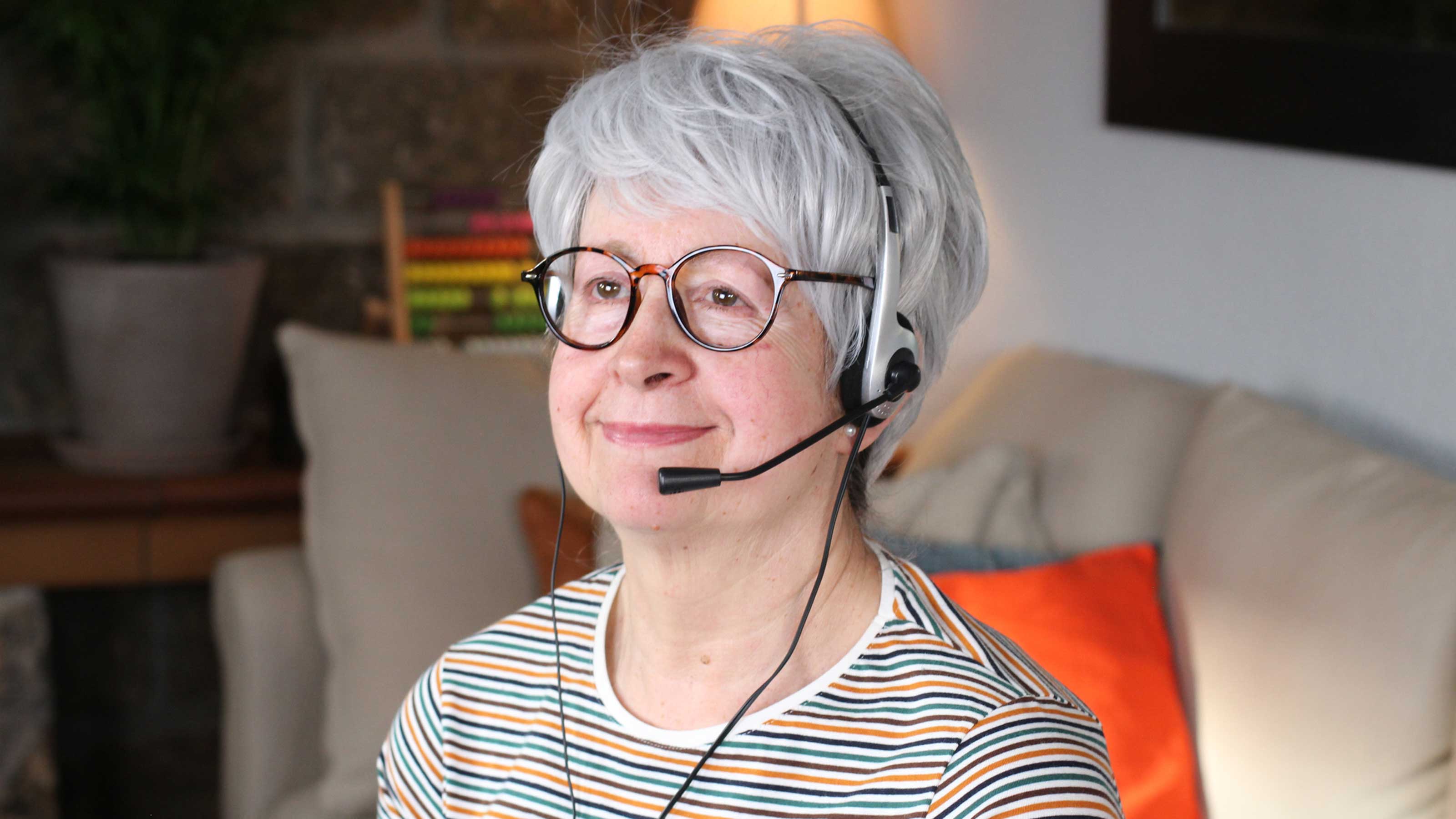Go Ahead, Have a Latte
You can still enjoy life a little by following the old chestnut to pay yourself first.

Profit and prosper with the best of Kiplinger's advice on investing, taxes, retirement, personal finance and much more. Delivered daily. Enter your email in the box and click Sign Me Up.
You are now subscribed
Your newsletter sign-up was successful
Want to add more newsletters?

Delivered daily
Kiplinger Today
Profit and prosper with the best of Kiplinger's advice on investing, taxes, retirement, personal finance and much more delivered daily. Smart money moves start here.

Sent five days a week
Kiplinger A Step Ahead
Get practical help to make better financial decisions in your everyday life, from spending to savings on top deals.

Delivered daily
Kiplinger Closing Bell
Get today's biggest financial and investing headlines delivered to your inbox every day the U.S. stock market is open.

Sent twice a week
Kiplinger Adviser Intel
Financial pros across the country share best practices and fresh tactics to preserve and grow your wealth.

Delivered weekly
Kiplinger Tax Tips
Trim your federal and state tax bills with practical tax-planning and tax-cutting strategies.

Sent twice a week
Kiplinger Retirement Tips
Your twice-a-week guide to planning and enjoying a financially secure and richly rewarding retirement

Sent bimonthly.
Kiplinger Adviser Angle
Insights for advisers, wealth managers and other financial professionals.

Sent twice a week
Kiplinger Investing Weekly
Your twice-a-week roundup of promising stocks, funds, companies and industries you should consider, ones you should avoid, and why.

Sent weekly for six weeks
Kiplinger Invest for Retirement
Your step-by-step six-part series on how to invest for retirement, from devising a successful strategy to exactly which investments to choose.
Earlier this summer, the Twittersphere was ablaze when CNBC tweeted out a video in which Suze Orman, the tough-love personal finance guru, excoriates millennials who buy coffee every morning. She claims that the daily ritual of going to Starbucks or Peet’s or wherever they get their caffeine fix and paying $1 to $3 a pop endangers their retirement. It is the equivalent of “peeing a million dollars down the drain,” she says. (You can watch the video at CNBC’s “Make It” YouTube channel.)
Suze’s style is in-your-face, preachy and prescriptive. In the video, she says coffee you don’t brew at home is a “want,” not a “need”—which is true, but she taunts her audience. “I would not insult myself by wasting money that way,” she shouts at the camera. “And I can afford it … and chances are you can’t.”
Worse, she is guilty of some fuzzy math. To get to $1 million, Orman rounds up “$1 to $3 a day” to $100 a month, then assumes you’d earn an annualized 12% on that money in a Roth IRA over 40 years. (Taking the lower end of her range—a dollar a day—and applying a more realistic 7% annualized return over the same 40 years, you’d pee only about $78,000 down the drain.)
From just $107.88 $24.99 for Kiplinger Personal Finance
Become a smarter, better informed investor. Subscribe from just $107.88 $24.99, plus get up to 4 Special Issues

Sign up for Kiplinger’s Free Newsletters
Profit and prosper with the best of expert advice on investing, taxes, retirement, personal finance and more - straight to your e-mail.
Profit and prosper with the best of expert advice - straight to your e-mail.
I scrolled through the comments left by skeptical viewers, and some of them were hilarious. Marea tweeted, “I won’t be lectured on unnecessary luxuries by a bourgeois white woman in a gold leather coat.” Caroline wrote, “I started making my coffee at home, but I still have $78,000 in student debt. Any ideas how to fix this?” And a commenter going by It’s My Country weighed in with “There’s something to be said about spending money on things that give us pleasure and make life enjoyable. And where that’s concerned, coffee is a pretty good bargain.”
Suze wasn’t the first to accuse millennials (and the rest of us) of sabotaging a secure retirement by spending on items that give us pleasure. A couple of years ago, an Australian real estate mogul told his country’s version of 60 Minutes that the villain was avocado toast—and spending on avocados may be one reason some young people can’t afford a house. The original latte diatribe came from personal finance author David Bach, who calculated in his 1998 book Smart Women Finish Rich that a Starbucks habit was worth $2 million in forgone retirement savings. And that assumed a mere 11% return.
Pay yourself first. At Kiplinger’s, our mission is to help you save for retirement and other major goals, but we take a gentler approach. The best way to free up the money for retirement savings, of course, is to spend less than you earn—and to minimize debt by not stretching to buy a house or luxury car or spending your retirement money on a pricey college for your kids (see our best college values story and our top picks for the safest used vehicles). You can address the uncertainty about how to save and still enjoy life a little by following the old chestnut to pay yourself first (by automatically transferring money from your paycheck to savings) and creating a budget to allocate what’s left.
The planner my wife and I see has a system that helps deal with the uncertainty and anxiety. One line item in our budget is the monthly amount each of us allots for nonessential expenses, such as lattes, lunches and dinners at restaurants, and clothes. If we hit our cap, we stop spending.
It’s also essential to adopt an approach to your finances that doesn’t complexify them and freeze you into inaction. Our cover story, Simplify Your Finances, can help. In addition to tips for making budgeting less daunting, we have strategies to simplify your portfolio, manage and pay down debt, and more.
Profit and prosper with the best of Kiplinger's advice on investing, taxes, retirement, personal finance and much more. Delivered daily. Enter your email in the box and click Sign Me Up.

Mark was the editor of Kiplinger's Personal Finance magazine from July 2017 to June 2023. Prior to becoming editor, he was the Money and Living sections editor and, before that, the automotive writer. He has also been editor of Kiplinger.com as well as the magazine's managing editor, assistant managing editor and chief copy editor. Mark has also served as president of the Washington Automotive Press Association. In 1990 he was nominated for a National Magazine Award. Mark earned a B.A. from University of Virginia and an M.A. in Writing from Johns Hopkins University. Mark lives in Washington, D.C., with his wife, and they spend as much time as possible in their Glen Arbor, Mich., vacation home.
-
 How Much It Costs to Host a Super Bowl Party in 2026
How Much It Costs to Host a Super Bowl Party in 2026Hosting a Super Bowl party in 2026 could cost you. Here's a breakdown of food, drink and entertainment costs — plus ways to save.
-
 3 Reasons to Use a 5-Year CD As You Approach Retirement
3 Reasons to Use a 5-Year CD As You Approach RetirementA five-year CD can help you reach other milestones as you approach retirement.
-
 Your Adult Kids Are Doing Fine. Is It Time To Spend Some of Their Inheritance?
Your Adult Kids Are Doing Fine. Is It Time To Spend Some of Their Inheritance?If your kids are successful, do they need an inheritance? Ask yourself these four questions before passing down another dollar.
-
 Stick With Your Plan
Stick With Your PlanFeature Timing the market is nearly impossible. The worst thing you can do is sell stocks when prices are tumbling.
-
 Complain and Be Heard
Complain and Be HeardFeature Getting our money back for the extended warranty and gap insurance we didn't want took patience and persistence.
-
 Getting Good Service
Getting Good ServiceFeature We rated the customer service of large financial service firms for accessibility, reliability, responsiveness and knowledgeable answers.
-
 A Level Playing Field
A Level Playing FieldFeature Doug Glanville says baseball can provide a great example of teamwork, fairness and communication for the U.S.
-
 Why I’m Optimistic
Why I’m OptimisticFeature If we look ahead and see straight—and focus on what’s good for all of us—we will emerge from the darkest hours even stronger.
-
 Reaching for a Lifeline
Reaching for a LifelineFeature The theme of this issue is what to do about your money in the time of the coronavirus and a distressed economy.
-
Home Sweet Asset
Feature A home is a valuable and versatile financial tool that can help you increase your wealth.
-
 100 Years of Advice
100 Years of AdviceFeature Happy birthday to us! We’ve got plenty of trustworthy, valuable advice for the future, too.